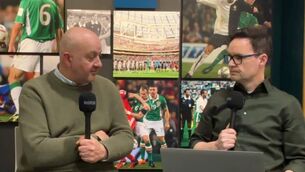There is a terror behind the dream of being a professional ballplayer. It comes as a slow realisation of finality and of the frightening unknowns which the end brings. When the playing is over, one can sense that one’s youth has been spent playing a game and now both the game and the youth are gone, along with the innocence that characterises all games which at root are pure and promote a prolonged adolescence in those who play. What is left is the other side of the Faustian bargain: to live all one’s days never able to recapture the feeling of those few years of intensified youth.
For the athlete who reaches 35, something in him dies; not a peripheral activity but a fundamental passion. He approaches the end of his playing days the way old people approach death. He puts his finances in order. He reminisces easily. He offers advice to the young. But the athlete differs from an old person in that he must continue living.
Already a subscriber? Sign in
You have reached your article limit.
Subscribe to access all of the Irish Examiner.
Annual €130 €80
Best value
Monthly €12€6 / month
Introductory offers for new customers. Annual billed once for first year. Renews at €130. Monthly initial discount (first 3 months) billed monthly, then €12 a month. Ts&Cs apply.
CONNECT WITH US TODAY
Be the first to know the latest news and updates















